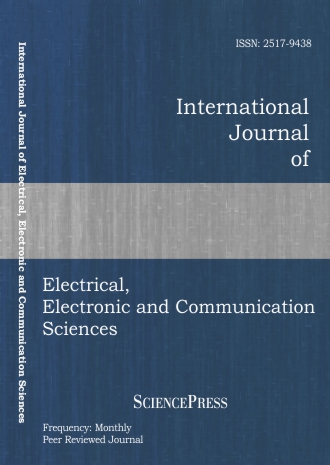
Scholarly
Volume:1, Issue: 2, 2007 Page No: 325 - 328
International Journal of Electrical, Electronic and Communication Sciences
ISSN: 2517-9438
Performance of Laboratory Experiments over the Internet: Towards an Intelligent Tutoring System on Automatic Control
Intelligent tutoring systems constitute an evolution of computer-aided educational software. We present here the modules of an intelligent tutoring system for Automatic Control, developed in our department. Through the software application developed,students can perform complete automatic control laboratory experiments, either over the departmental local area network or over the Internet. Monitoring of access to the system (local as well as international), along with student performance statistics, has yielded strongly encouraging results (as of fall 2004), despite the advanced technical content of the presented paradigm, thus showing the potential of the system developed for education and for training.